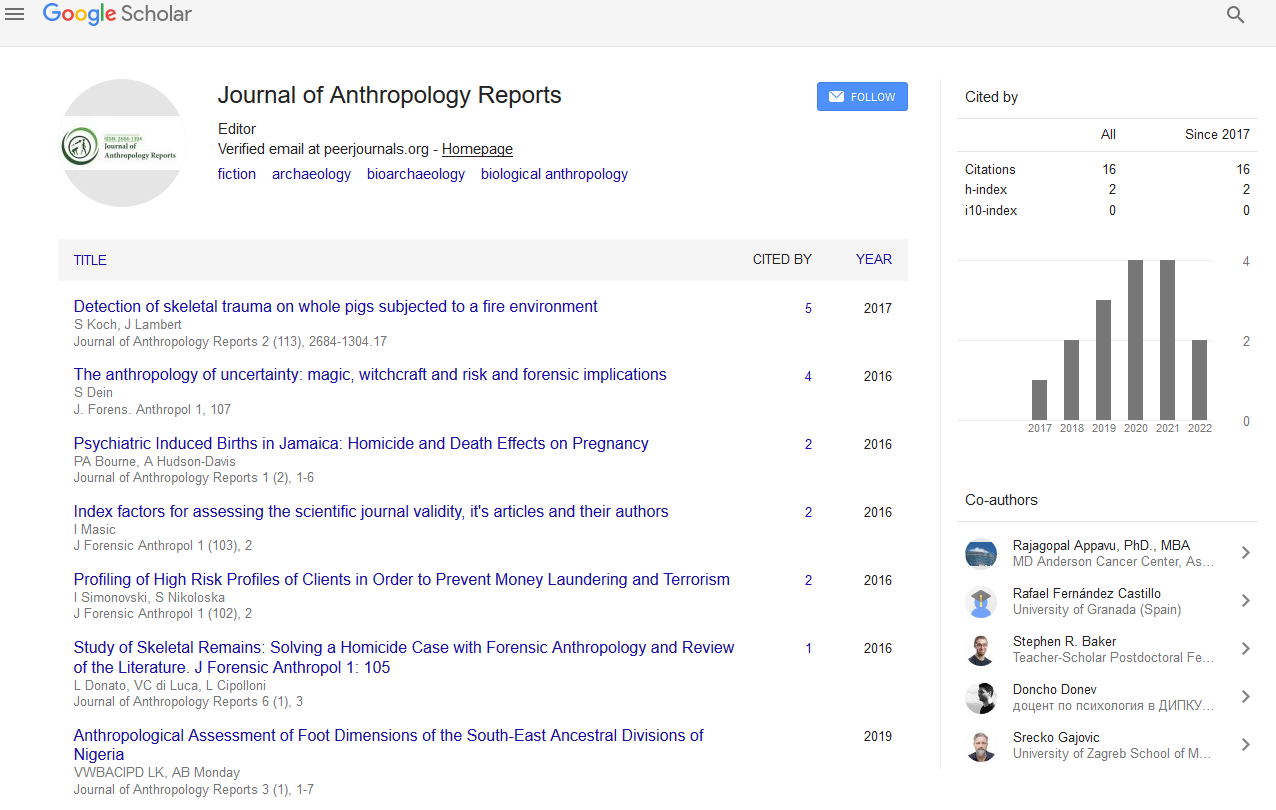Indexed In
- RefSeek
- Hamdard University
- EBSCO A-Z
Useful Links
Share This Page
Journal Flyer

Open Access Journals
- Agri and Aquaculture
- Biochemistry
- Bioinformatics & Systems Biology
- Business & Management
- Chemistry
- Clinical Sciences
- Engineering
- Food & Nutrition
- General Science
- Genetics & Molecular Biology
- Immunology & Microbiology
- Medical Sciences
- Neuroscience & Psychology
- Nursing & Health Care
- Pharmaceutical Sciences
Perspective - (2022) Volume 5, Issue 5
Methods Involved in Process of Psychological Autopsy
Meyer Bass*Received: 08-Aug-2022, Manuscript No. JFA-22-18360; Editor assigned: 10-Aug-2022, Pre QC No. JFA-22-18360 (PQ); Reviewed: 25-Aug-2022, QC No. JFA-22-18360; Revised: 01-Sep-2022, Manuscript No. JFA-22-18360 (R); Published: 08-Sep-2022, DOI: 10.35248/2684-1304.22.5.138
Description
Psychological autopsy is one of the most effective techniques for analysing committed suicide. Interviewing friends, family members, and any on-duty medical personnel is part of the process, which is used to compile all available information about the dead. Information is also gathered from additional documents, forensic examinations, and any available medical and mental records. A psychological autopsy therefore compiles data from numerous sources including records and informants. Early psychiatric autopsies showed that more than 90% of suicides had concurrent mental health issues, with mood disorders and/or substance use disorders making up the majority of these issues. Furthermore, despite frequent contact with psychiatry or other medical services they demonstrated the astonishing under treatment of various mental illnesses. The majority of more recent psychological autopsy investigations have employed casecontrol methodologies making it easier to quantify the contribution of different suicide risk factors. Future psychological autopsy research may concentrate more on the relationships between risk factors or risk factor domains, on certain suicide populations that are crucial to suicide prevention, or it may combine the techniques of psychological autopsy with biological data.
Different methods approached by psychologist
A psychological autopsy employs a variety of instruments, just like biological autopsies, to comprehend a person's mental state just before death. These instruments are used to examine any factors that might have had an impact on the deceased's psyche and can reveal reasons why self-harm was committed. Psychological, environmental, medical, mental, and emotional effects are a few of these elements. In order to inform contemporary suicide prevention efforts, a psychological autopsy is conducted to determine the psychological causes that led to a suicide death.
For family members and loved ones, psychological autopsies typically offer a clearer picture of the deceased's mental condition just before death. The primary approach uses qualitative interviews, or in-depth conversations with those connected to the deceased. These people include medical professionals, therapists, loved ones, and friends. An investigative psychologist may find evidence of mental illness, prescription medications, and behavioral changes prior to the death by completing these interviews. For instance, during an interview with a physician or therapist, a psychologist might inquire as to whether the subject has shown any strange behavior.
Interviewing a family member can also help determine whether a person is suffering from suicidal ideation, which includes having frequent thoughts about suicide or making plans to do so. However, one must be careful not to stifle the grieving process when approaching the family of a deceased person. An extensive amount of data must be gathered before a psychological autopsy can be completed. Some of this data is personal (such as any history of drug or alcohol abuse, known stresses, lifestyle, relationships, etc.), biographical (such as birth date, occupation, marital status, and relationship status), any secondary data (such as criminal record, family history), and data gathered through interviews with the deceased's family members. After gathering this data, forensic psychologists can start putting together the psychological autopsy.
Conclusion
Although it is not utilized as frequently as one might anticipate, this investigation tool is still thought to be a crucial asset for an investigative team, especially when used in conjunction with their other tools. A psychological autopsy may be conducted for other, less frequent reasons, such as to determine whether a practitioner or clinician is in any way at fault.
Citation: Bass M (2022) Methods Involved in Process of Psychological Autopsy. J Anthropology Rep. 5:138.
Copyright: © 2022 Bass M. This is an open-access article distributed under the terms of the Creative Commons Attribution License, which permits unrestricted use, distribution, and reproduction in any medium, provided the original author and source are credited.

